For children and young people who can't live safely at home — whether temporarily or permanently — out-of-home care is intended to keep them safe and support them to heal and thrive.
However, Victoria has the highest rate of children entering out-of-home care in Australia, with an 11 per cent growth per year from 2013 to 2018. This means that one in 50 Victorian children will have an out-of-home care experience before their 17th birthday.
The data also tells us that an out-of-home care experience can have a lifelong impact on a child's life, as it interrupts their connections to family, community, culture and education. These are all vital to their wellbeing, health and development.
The Out-of-Home Care Philanthropic Funders Network (the OoHC Network) is a collaborative group of philanthropists with a shared interest in improving the outcomes of children and young people at risk of entering, or with an experience of, out-of-home care. The Centre for Excellence in Child and Family Welfare (the Centre), Victoria's peak body for child and family services, is funded by Equity Trustees to coordinate and facilitate the OoHC Network.
In June 2020, members of the OoHC Network were thrilled to announce an Innovation Grant of more than half a million dollars to the Victorian Aboriginal Child Care Agency (VACCA), the lead Aboriginal child and family organisation in Victoria. The grant was awarded to co-design a new approach to supporting young Aboriginal mothers raise their babies and infants at home.
Aboriginal children are significantly over-represented in out-of-home care, with about one in 18 Aboriginal and Torres Strait Islander children in care in Australia as at 30 June 2019. This is more than 10 times the rate for non-Aboriginal children. The three-year VACCA Project, Growing Up Aboriginal Babies at Home, will commence in October 2020 and will be delivered by VACCA in partnership with the University of Melbourne's Department of Social Work. The VACCA Project is the second collaborative funding grant of the OoHC Network.
Collaboration is a key feature of the both the VACCA Project and OoHC Network. Growing Up Aboriginal Babies at Home recognises that solutions to challenges faced by Aboriginal communities must be community led, trauma informed and grounded in the principle of self-determination. The project will use a co-design process in its development, as well as systems thinking to tackle the root causes for transformational change, with the ultimate aim of reducing the over-representation of Aboriginal children in child protection and out-of-home care.
Growing Up Aboriginal Babies at Home will work with Aboriginal Controlled Community Organisations (ACCOs) across Victoria, as well as community service organisations and government. It will also connect with housing and education services, drug and alcohol, mental health, family violence and antenatal and post-natal care services to provide wrap-around support for young Aboriginal mothers to help them to keep their babies at home.
The project's funding through the OoHC Network is also unique, with members Equity Trustees — The David Taylor Galt Charitable Trust, Gandel Philanthropy, William Buckland Foundation, The Jack Brockhoff Foundation, Sidney Myer Fund and the Australian Communities Foundation – EM Horton Family Fund collaborating to fund the project.
The Centre plays a key role connecting the OoHC Network members with the child and family service sector, providing experience and evidence of what works, and innovation in out-of-home care in Victoria and other jurisdictions. This information sharing enables OoHC Network members to enhance their understanding of the out-of-home care system and hear the voices of children and young people to inform their work.
The OoHC Network's Innovation Grants program allows the OoHC Network's members to collaborate to drive innovation and systemic change in the out-of-home care sector. With the support of the Centre, it also enables the out-of-home care sector to collaborate and share the learnings from innovation grant projects, improve the experiences and outcomes for children and young people who are, or have been in, out-of-home care.
By Deb Tsorbaris
CEO Centre for Excellence in Child and Family Welfare


